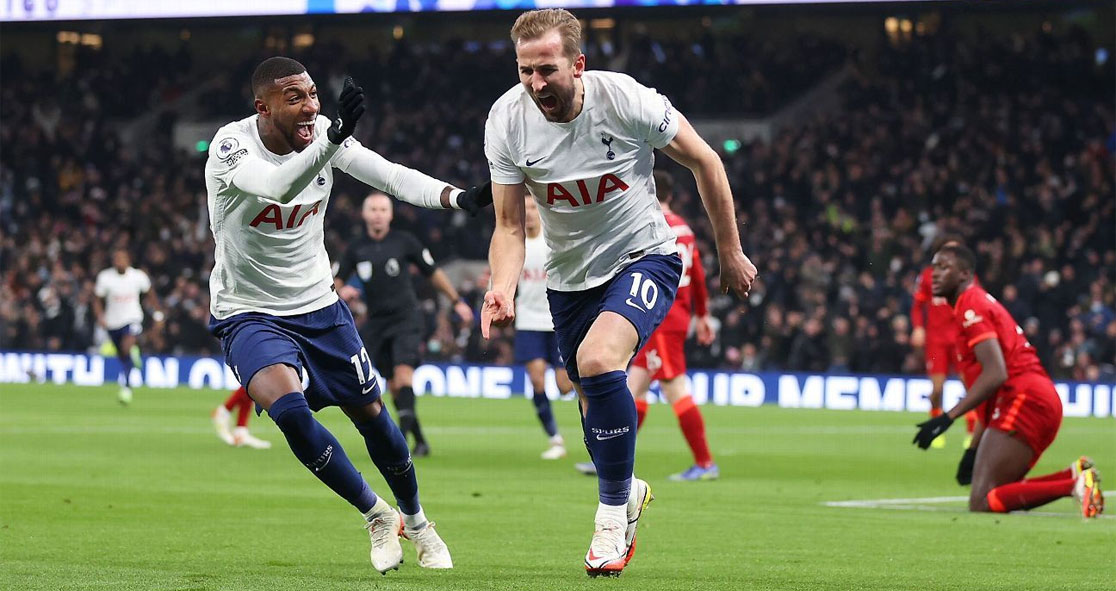The Premier League’s battle continues amid rising COVID-19 cases across Britain, giving every game a heightened sense of unpredictability.
Liverpool lacked poise and needed some calm amid the COVID chaos, as the club lost ground in the title race after Sunday’s 2-2 draw at Tottenham Hotspur.
Virgil van Dijk, Fabinho, Thiago Alcantara, and Curtis Jones tested positive for COVID in recent days, prompting Liverpool manager Jürgen Klopp to claim before kickoff that he was “happy” to play on Sunday, but the club is unlikely to fulfill fixtures next week if the COVID situation worsens further. Even Jordan Henderson was sent home with a cold.
Without Van Dijk at the heart of their defense, the team looked alarmingly vulnerable to the pace and movement of Tottenham’s front two.
Klopp explained, “The challenge today was we played against Tottenham, who set up a 5-3-2, and when they won the ball as deep in their own half, they just kicked it as far as possible and Harry Kane and Son Heung-Min were on their bikes. We struggled with these moments slightly. It gives you some struggles so we had to reorganize our protection a little bit better in the second half.
“It makes no sense that Ibrahima Konate is involved in our offensive passing and Tyler Morton is the one who stands against Harry Kane,” he added. “That’s not how it should be.”
Before the match, Klopp demanded action to tackle anti-vax players. He outlined a future in which a vaccine refusenik could be more trouble than he is worth.
He said, “We are not close to signing a player but I thought about it and yes, it will be influential, definitely.”
Klopp’s friend Steven Gerrard, the Aston Villa manager, has voiced similar sentiments. If Klopp has a jabs-for-jobs policy, vaccines could shape the future of his side, according to The Guardian.
He wanted potential teammates for Roberto Firmino, Sadio Mané, and Salah to trust in Pfizer, Moderna, and AstraZeneca jabs.
The club manager said, “If a player is not vaccinated at all, he is a constant threat for all of us.”
“He doesn’t want to be a threat. It is not that he thinks: ‘I don’t care about the others.’ But he is [a threat] and we have to find different scenarios,” he added. “He has to change in a different dressing room, he has to eat in a different dining room, he has to sit in a different bus, he has to drive in a different car: from an organizational point of view, it gets really messy.”























